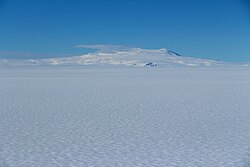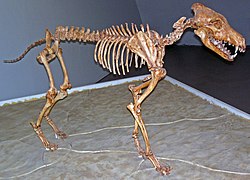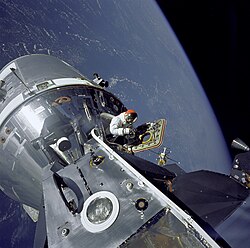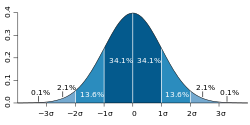Portal:Science
Science portal

Science is a systematic discipline that builds and organises knowledge in the form of testable hypotheses and predictions about the universe. Modern science is typically divided into two or three major branches: the natural sciences (e.g., physics, chemistry, and biology), which study the physical world; and the social sciences (e.g., economics, psychology, and sociology), which study individuals and societies. Applied sciences are disciplines that use scientific knowledge for practical purposes, such as engineering and medicine. While sometimes referred to as the formal sciences, the study of logic, mathematics, and theoretical computer science (which study formal systems governed by axioms and rules) are typically regarded as separate because they rely on deductive reasoning instead of the scientific method or empirical evidence as their main methodology. (Full article...)
Featured article -
Featured pictures
Vital articles
Social science (often rendered in the plural as the social sciences) is one of the branches of science, devoted to the study of societies and the relationships among members within those societies. The term was formerly used to refer to the field of sociology, the original "science of society", established in the 18th century. In addition to sociology, it now encompasses a wide array of academic disciplines, including anthropology, archaeology, economics, geography, history, linguistics, management, communication studies, psychology, culturology, and political science. (Full article...)
Did you know...
- ... that Cambodia's first science-fiction film, Karmalink, combines Buddhist concepts of karma with themes of artificial intelligence?
- ... that one of the first Polish science fiction novels featured a trip to the South Pole by airship, a decade before a similar airship was built?
- ... that after Ursula K. Le Guin published her collection The Wind's Twelve Quarters, a reviewer called her the "ideal science fiction writer for readers who ordinarily dislike science fiction"?
- ... that Margareth Rago seeks to establish a methodology for what she calls "feminist science"?
- ... that a year after becoming the first woman president of the Canadian Political Science Association, Caroline Andrew moderated the first Canadian leaders' debate on women's issues?
- ... that Ladislav Burlas, a musicologist at the Slovak Academy of Sciences for almost 40 years, wrote more than 150 works during his career?
Get involved
| This portal needs to be updated. Please help update this portal to reflect recent events or newly available information. Relevant discussion may be found on the talk page. |

|

|
Science News
- 16 April 2025 –
- A colossal squid is filmed in the Southern Atlantic Ocean for the first time since the species was discovered in 1925. The 30 cm (12 in)-long juvenile was filmed by a team of scientists led by the University of Essex near the South Sandwich Islands at a depth of 600 m (2,000 ft). (BBC News)
- 14 April 2025 – Blue Origin NS-31
- A Blue Origin New Shepard launch vehicle makes a brief sub-orbital spaceflight, carrying six female space tourists, marking the first all-female spacecraft since 1963's Vostok 6 which had Valentina Tereshkova as the pilot and the spacecraft's sole passenger. (NPR) (USA Today)
- 1 April 2025 – Private spaceflight
- SpaceX successfully launches four humans into orbit over Earth’s poles for the first time for the human spaceflight mission Fram2. The journey will last three to five days. (The New York Times)
- 26 March 2025 –
- Scientists discover Mongolian dinosaur Duonychus tsogtbaatari. (NBC News)
- 25 March 2025 –
- A 6.7 magnitude earthquake hits New Zealand causing a tsunami warning to be issued. A tsunami was then spotted in Fiordland. [1]
- 7 March 2025 – Stand Up for Science 2025
- Organized demonstrations and walkouts of scientists take place across 30 cities in the United States and France in protest of the Donald Trump administration's grant budget and employment cuts to several government scientific agencies. (AP)
Related portals
Top 10 WikiProject Science Popular articles of the month -
Categories -


































































